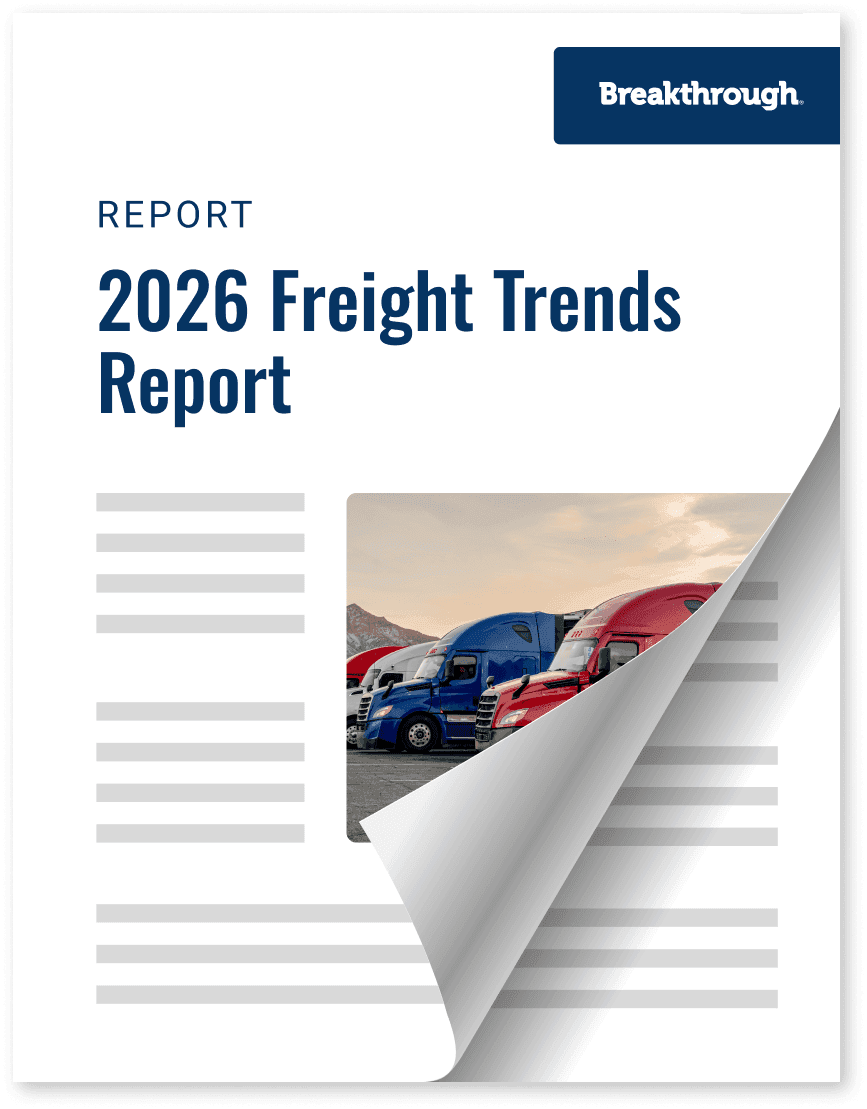2026 Freight Trends Report

Trending
Top Posts
6 min read
December 8, 2020

Share:
Table of contents
Browse the table of contents to jump straight to the part you’re looking for
The 2020 U.S. presidential election is now behind us and Democrat Joe Biden will replace current president Republican Donald Trump in January. Biden plans to bring policies sure to shake up the energy and transportation industries. In addition, the president-elect will lead one of the world’s largest economies through some of the most turbulent times the nation has ever witnessed. Much of this turbulence and coinciding near-term strategy will be centered on a COVID-19 response plan and stimulating the economy after enduring the deepest recession since the Great Depression.
In the longer-term, Biden has grand ambitions under his ”Build Back Better” framework. Full-fledged execution, however, hinges on the makeup of Congress—particularly the Senate—which will not be formally determined until the start of the new year. See below for a summarized look at some of Biden’s anticipated climate, energy, and infrastructure policy stances that will likely impact shippers and their supply chains throughout his four-year term.
For a full analysis comparing Joe Biden’s energy and transportation campaign platform to Donald Trump’s, read our blog here.
Campaign Pledge: Joe Biden considers climate change a threat to national security. His administration will make this a top priority and is motivated to bring the U.S. back to the international climate conversation after a relative hiatus under the Trump administration. Immediately rejoining the Paris Climate Agreement and assuming a leadership-type role in that accord will be the first step in kick-starting the U.S.’ revamped involvement in progressing climate action.
Many aspects of Joe Biden’s energy, infrastructure, and foreign policy positions will be affected by moves made in the climate department. His Clean Energy Revolution blueprint—a strategy to produce 100 percent renewable electricity by 2035 and become a net-zero carbon emitter by 2050—lays the groundwork for future carbon reduction efforts.
Under Presidential Control: Biden plans to restore or reinforce dozens of environmental regulations that were either scaled back or removed under Donald Trump’s conservative direction. These include reinstating fuel economy standards for consumer vehicles, limiting methane emissions within energy production (including oil and gas), and increasing the scrutiny on energy transportation projects. Each of these items can be passed by executive order or through appointed agency positions.
Congressional Approval Required: Larger ambitions that need funding will require congressional approval. Gaining bipartisan support may be easier than other policy areas because some Republicans in Congress are supportive of responsible climate action. These plans include scaling electric vehicle development and charging infrastructure, the potential for a national carbon pricing program, and large-scale funding of renewable energy projects with revenues from tax reform.
For more information about how Breakthrough helps their clients eliminate carbon emissions from their supply chain strategy, read here.
Campaign Pledge: Joe Biden acknowledges that the U.S.’ current energy market prominence is one of its most powerful assets. The nation’s independence and authority in the global energy landscape have encouraged Biden to maintain the support of domestic energy companies and the fossil fuels industry at large. That said, Biden’s team will progressively work to displace fossil fuel consumption with cleaner, renewable energies to achieve carbon neutrality in the longer term.
Joe Biden’s energy and climate agendas are perceivably interconnected, with most of his energy market plan bearing in mind climate-related ideals. Some of these can be enacted on day one, while others may face a partisan divide and budgeting hurdles that prolong their execution.
Under Presidential Control: Biden plans to ban new crude oil and natural gas projects on federal lands and waterways. This would have minimal impact on oil production—only 5 percent of total U.S. production is on federal land—but would set the tone for a low carbon transition. Other executive orders may include more of a comprehensive review of energy projects, removing refinery exemptions from the Renewable Fuel Standard (RFS) program, and potential limits on fossil fuel exports (though nothing has been formally discussed).
Global implications exist within foreign relations of energy-producing nations. Biden’s ability to revisit sanctions on countries like Iran and Venezuela can alter the global supply-demand balance of energy. Indications are that pressure on Venezuela will stay, but a renewed deal with Iran is possible in late-2021. This would bring more oil supply to the global market and slight downward price pressure.
Congressional Approval Required: Many ambitions of Biden’s energy plan weigh on congressional approval. Removing or altering industry-friendly provisions of the current tax code for fossil fuel companies is chief among them. Redirecting these codes would presumably be tied to support for renewable energy and electric vehicle funding, as called out in the climate and energy section above.
A longer-term item is influencing future requirements of the nation’s Renewable Fuel Standard (RFS) beyond 2022. The RFS program dictates the proportion of renewables that fossil fuel producers must incorporate, while also creating incentives for the low-carbon fuel producers. Biden will be a strong advocate for increasing renewable requirements, but the passage of RFS mandates ultimately comes down to Congressional approval.
Biden’s Campaign Pledge: Joe Biden’s commitments under his infrastructure plan are progressive, lofty, and widely linked to the underlying objectives set forth by his climate policies. Biden looks to use infrastructure advancements as a catalyst for job growth and economic expansion by making unprecedented investments in clean energy innovations and expediting their nationwide deployment.
Congressional Approval Required: Unlike many of the policies Biden plans to address, most infrastructure undertakings will require significant financial resources that require congressional approval. Things like smart electricity grids, profound electric vehicle funding, and the buildout of alternative energy infrastructure are resource-intensive projects that will not be an overnight success. Biden plans to invest $1.3 trillion over the next decade to facilitate the materialization of these infrastructure desires. In doing so, he aims to equip everything from roads and railways to households and factories with the tools necessary to strengthen the U.S.’ economic footing and lessen its carbon footprint.
With a new president comes a new agenda and overall shift in political perspective that will inevitably change how the nation navigates its day-to-day. Diving deeper, Joe Biden’s more liberal leadership style will spark change across energy markets, the transportation industry in total, and the broader supply chain industry. His direct approach to climate policy establishes a precedence that will create a ripple effect across energy and infrastructure, too. Whether in the form of regulating emissions, enacting fuel efficiency mandates, ensuring a swift transition from fossil fuels to renewables, or taxing carbon emitters, Biden’s clean energy revolution is the blueprint. The transportation industry will see firsthand how stricter environmental legislation leads to the change that has been discussed for years. It is no longer a matter of if U.S. governing bodies will enact this change, but when and to what extent.
Change is central to supply chain strategies, and shippers who understand the dynamics of policy, consumers, and transportation will set themselves apart from their competitors. For more information about how to leverage industry insights to elevate your strategy, contact us.
#BBD0E0 »

5 min read
January 22, 2026
Stricter English Language Proficiency rules are impacting driver capacity. See our data on how this is leading to upward linehaul rate pressure in 2026.
Read more
5 min read
January 20, 2026
Understand the latest trends in reefer rates. Our data analysis dissects if the market is in a seasonal swing or facing a true inflection point.
Read more
6 min read
January 13, 2026
Explore the key drivers of the diesel market, from freight demand to refinery cycles, and learn how to manage price volatility with data-driven strategies.
Read more